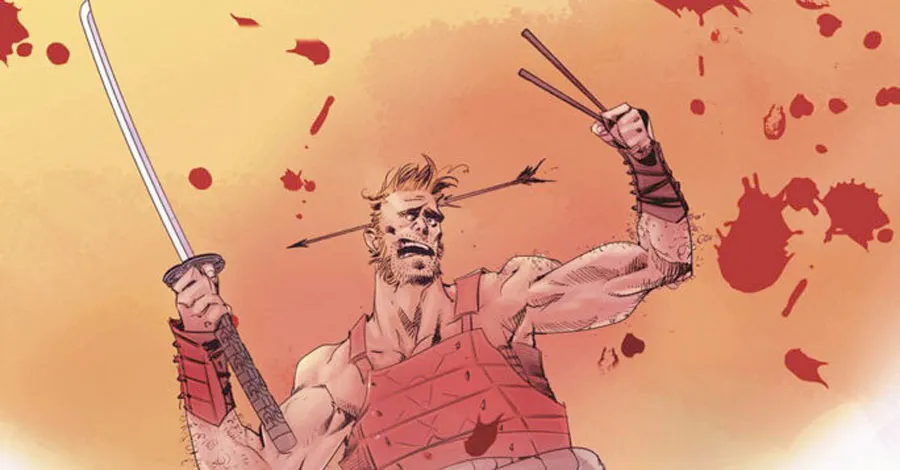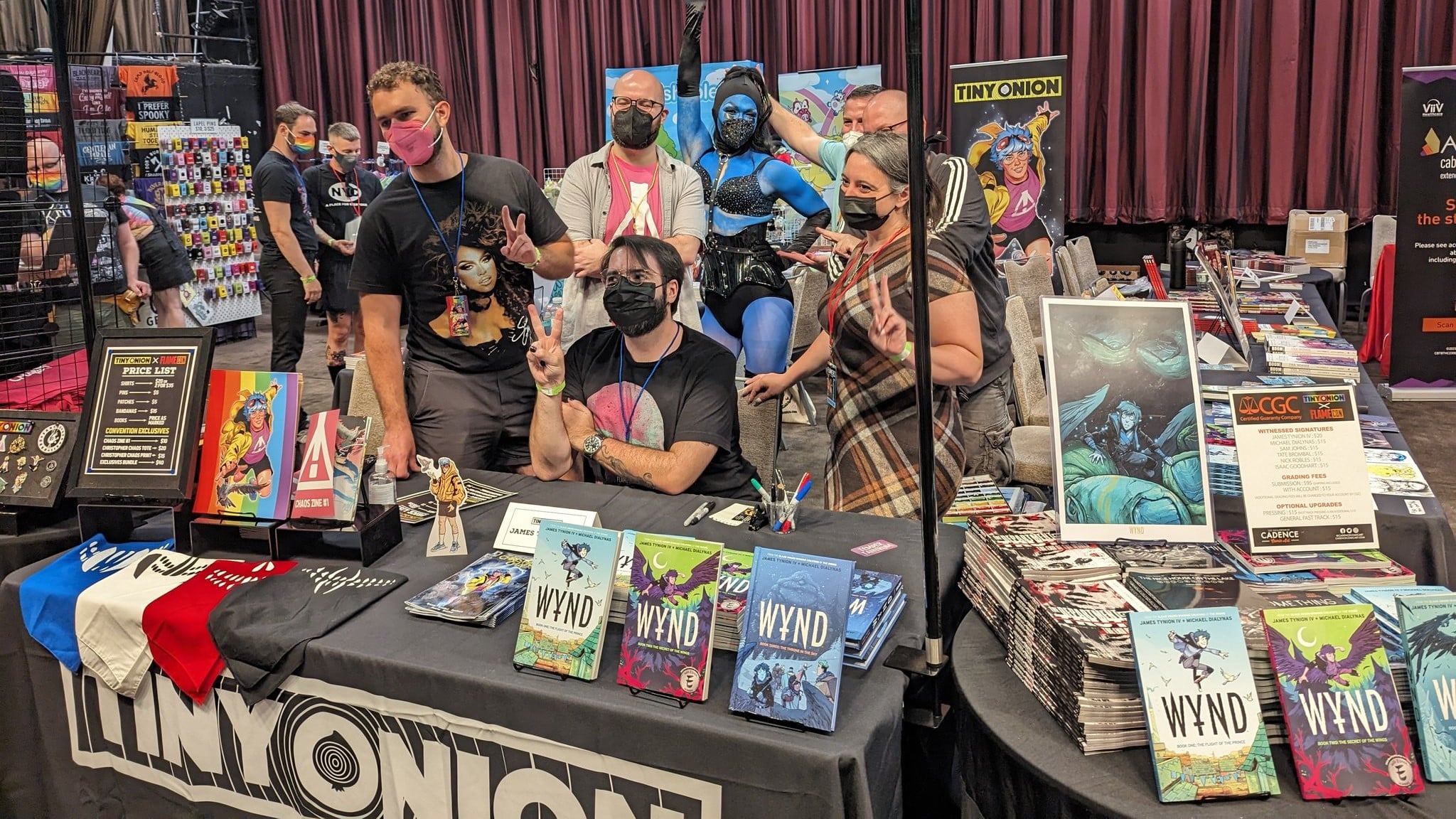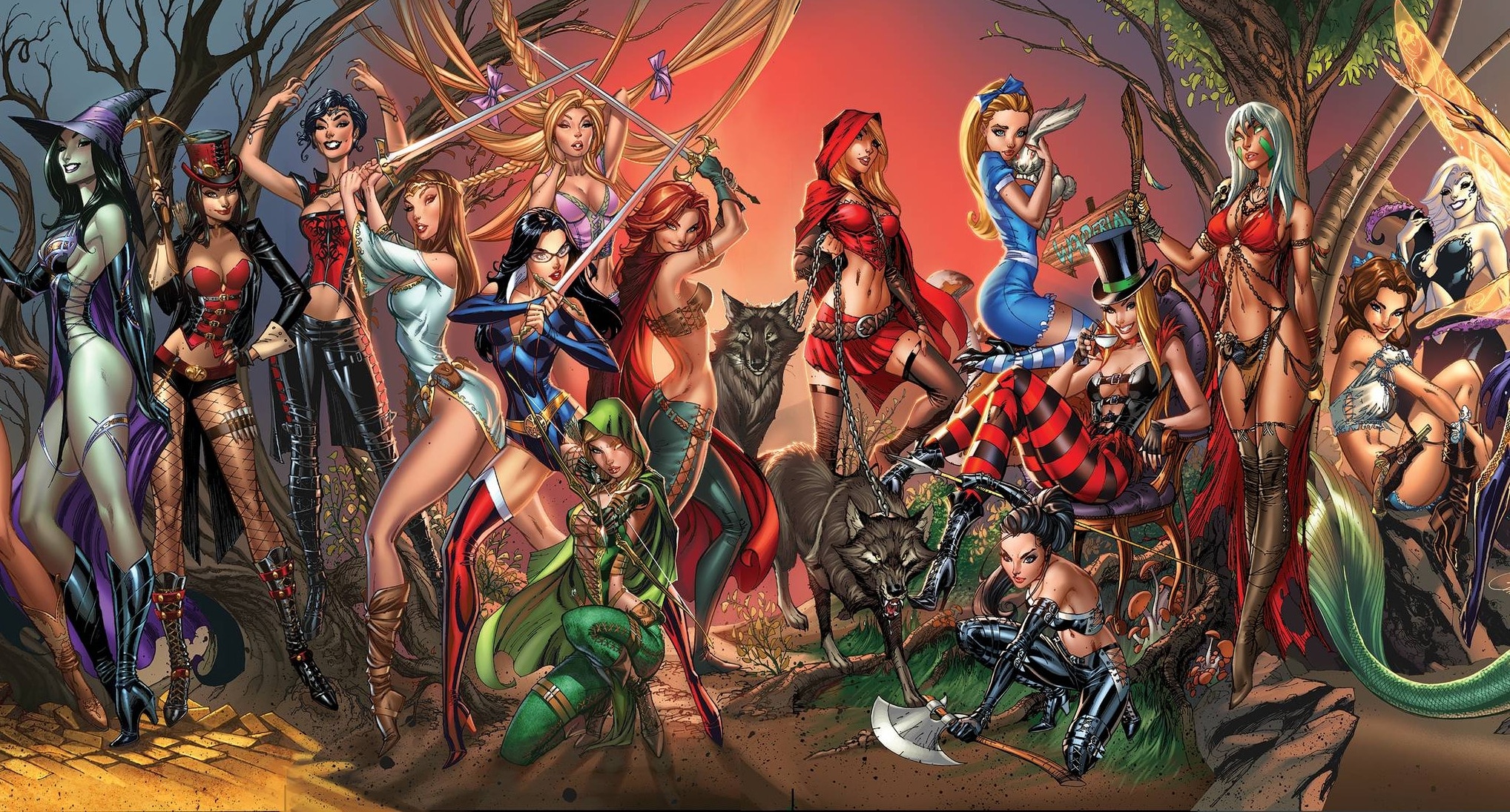Hollywood is historically rife with White Savior narratives. Hollywood is also rife with spoofs. A new comic by the team of Scott Burman, Eric Nguyen, Iwan Joko Triyono and Micah Myers hopes to combine both in comics form.
Published by Dark Horse comics, two issues have been published so far of the four-issue mini-series. CXF spoke to artist and co-creator Eric Nguyen about the book:
Ritesh Babu: What was the genesis of the book for you and the team? Do you remember the conversations that sparked the project? And when did it go from a rough idea to something more crystalized that you had to do?
Eric Nguyen: Great question. So I got a cold email from my co-writer Scott Burman. He sent me a script called “How I Got Drunk and Saved the World.” I don’t normally read scripts from random people on the internet, but the title just got to me. And I was amazed at how funny the script was. I was working for Marvel at the time, on the Weeknd’s Starboy book, but I kept in touch with Scott and a few months later, called him up and said, “let’s make something funny.”
I had never worked on a comedy before, and I’ve always just drawn, never did any writing. So I wanted to try something new. Scott and I were brainstorming ideas – and this was around the time the movie The Great Wall with Matt Damon came out. And we thought, what if the guy destined to save everyone was an idiot? The idea made us both laugh, and we started shooting ideas back and forth, and I think, very early on, we realized, there’s so much we can mine from this idea. The basic structure of the store took only a matter of days to create – and from there, we were off to the races.

Babu: How was the process of assembling the right team and home for the title once you decided on it? What made Dark Horse the right home for it in the end?
Nguyen: Scott was the best partner I could ask for. It’s a really funny dynamic between us. I’m pretty calm and quiet in general, and he’s a bit of a maniac – in a good way. Just very energetic and fun. He knew that art generally takes a lot longer than writing, so he assembled the rest of the team via Facebook groups. We found our letterer and colorist there, and honestly, it was a lot of luck that we found people as talented as they were who were available to work.
As for Dark Horse being the right home – they’ve been at the forefront of independent comics since longer than I can remember. I’ve worked with them before and always had a great relationship with them. There’s a reason why names like Brian Bendis, James Tynion, Scott Snyder, my good friend Micheal Oeming – there’s a reason why they’re all currently doing books with Dark Horse. It’s because they care about the creators, they care about the work, and if you’re producing an independent comic, they’re the place to do it.
Babu: Obviously the titular White Savior of the book is a blatant reference to both Tom Cruise’s Nathan Algren in The Last Samurai and Matt Damon’s William Garin in The Great Wall. That’s evident from the overt callout like Nathan Garin. But were you looking at or thinking of any other specific White Savior flicks of Hollywood, given there are so many?
Nguyen: It’s funny you say “obviously” because we started this seven years ago, and we both forgot that that’s why we named the character Nathan Garin. Scott says the most difficult part of writing for him is naming the characters – so he usually just puts in placeholders and nine times out of ten, the placeholders fit. So “Nathan Garin” was put in as a placeholder originally, and we just kept it in there.
We didn’t necessarily focus on a specific movie. We had this general story idea down, and for us, we wanted the comedy to grow out of this story. We didn’t want to spoof something just for the sake of spoofing it – we wanted the story to stand on its own.
Babu: The book has a clear and loud fourth-wall breaking sensibility. What led to that as a choice over perhaps ‘playing it straight’ as it were?

Nguyen: So I think anyone reading this book is going to understand the message. So for us, it’s important that we didn’t get too preachy with it. Our goal is to ultimately entertain, and we think that if people are entertained, then the message comes across a lot stronger. It seems sometimes comics, and other forms of media, focus a little too much on the message and the story gets lost somewhere along the way. And we realized we could use the fourth-wall breaking strategy to call out a lot of those tropes in the funniest way possible, without getting too heavy-handed.
Babu: The lead Asian-American Todd (and the Asian-American girl he’s pursuing) both speak in a contrastingly ‘grounded’ lettering style/font compared to the more stylized ‘exotic’ font of the classic Asian Stereotypes/Caricature figures that they’re stuck with. Was that something decided upon early on, or did that come about while making the book? What does your usual collaboration process look like, particularly with doing a comedy like this wherein the ‘delivery’ is so crucial and so controlled by the lettering in a form like comics?
Nguyen: So the brilliant lettering is all Micah Myers. What made our book a little tricky with the lettering is that we used what they call the “Marvel method.” So we had a basic script, I drew it, then we got together and filled the pages with jokes based on my art. But the problem with that is that every now and then, the jokes didn’t work as well when we saw them on the page. So it did require a little tweaking on our part, and Micah was so great at working with us to test things and “maximize the joke”, as Scott would say. So many little things can determine whether or not a joke works on the page – for instance, the right word being bolded/italicized, or where the box was positioned on the page, or even what words appeared on what line of each box. All of these things can contribute to whether or not a joke works, so Micah was instrumental in making this book as funny as it is.
Babu: Do you have any favorite spoof films or parodies that inspired you on this effort? Any that you looked at or considered as things to look to or carry on in the spirit of in doing this?

Nguyen: I think there’s a lot of influences that we didn’t necessarily realize were influencing us. Someone referred to it as a combination of Mel Brooks and Monty Python, and there’s definitely some Blazing Saddles and Holy Grail in there. Scott’s an encyclopedia of movie knowledge – he’d sometimes use movie references with me, and I’d have no idea what the heck he was talking about. We have a Blind Side reference in there, and I’ve never even seen the movie. So I’m sure there’s lots of influences that we didn’t even notice or realize. It’ll be fun watching readers point them out.
Ritesh Babu is a comics history nut who spends far too much time writing about weird stuff and cosmic nonsense.






